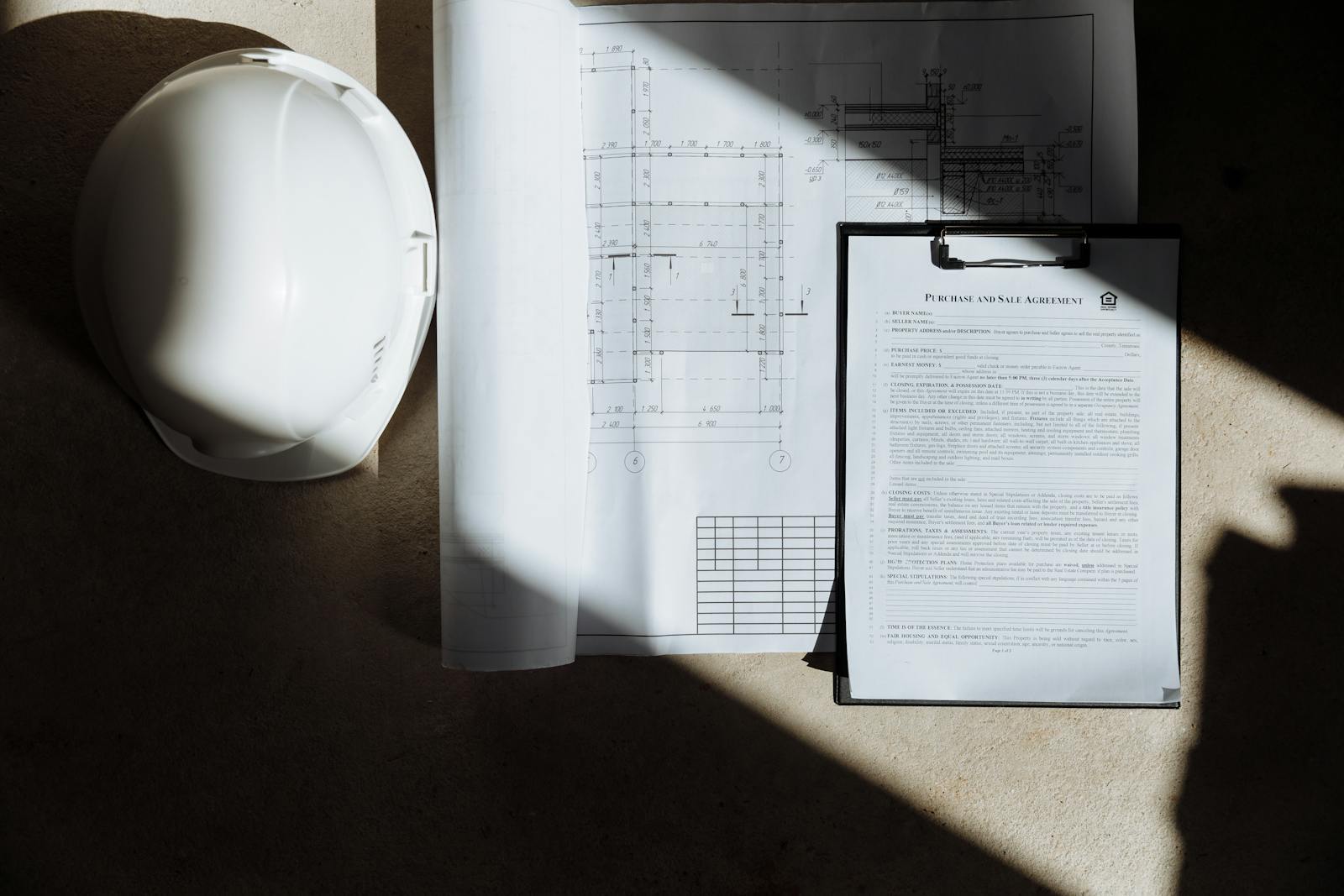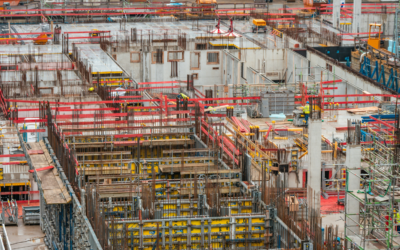For property owners, real estate developers, and business leaders embarking on a construction project, understanding construction contracts is non-negotiable. These agreements form the backbone of successful project management by defining the responsibilities of all parties involved, minimizing risks, and ensuring compliance with construction law.
Whether you’re a property owner developing a new property or renovating an existing one, this guide will take you through the vital aspects of construction contracts, helping you build your vision on a rock-solid foundation.

Understanding Construction Contracts
What is a Construction Contract?
A construction contract is a legally binding agreement that sets the framework for a construction project. It outlines the scope of work, payment terms, timelines, and responsibilities of all involved parties, ensuring every stakeholder is on the same page.
Having a well-drafted construction contract in place is essential for avoiding misunderstandings, resolving disputes efficiently, and ensuring the successful completion of the project. When crafted properly, it aligns all parties (property owners, contractors, subcontractors, and design professionals), thereby eliminating ambiguities.
Key Features of a Good Construction Contract:
- Clear definition of roles and responsibilities of all parties.
- Specific scope of work, including performance criteria and quality standards.
- Defined payment terms and schedules.
- Procedures for handling change orders.
- Dispute resolution mechanism.
- Comprehensive bidding documents that define the scope of work and responsibilities, including advertising, instructions to bidders, and other essential components.
Construction Contract Documents
What are Construction Contract Documents?
Construction contract documents are the backbone of any construction project, serving as the comprehensive blueprint that defines every aspect of the endeavor. These documents collectively outline the scope, schedule, cost, and responsibilities of each party involved, ensuring that everyone is on the same page from start to finish.
At their core, construction contract documents are legally binding agreements that set the terms and conditions of the project. They typically include:
- The Agreement: This document covers the essential specifics of the contract, including the parties involved, project details, and signature lines.
- General Conditions: These are the standard provisions that lay the groundwork for project execution.
- Special Conditions: Tailored clauses that address unique aspects of the project.
- Scope of Work: A detailed description of the tasks and deliverables involved.
- Construction Drawings: Visual plans that showcase designs and layouts.
- Specifications: Instructions on the materials and methods to be used.
- Schedule: Timelines for each phase of the project.
- Schedule of Values: A detailed breakdown of project costs by component or task.
- Bill of Quantities: A list of materials, labor, and their associated costs.
By meticulously detailing every element of the construction project, these documents help prevent misunderstandings, manage expectations, and ensure a smooth and successful completion.
Types of Contract Documents
Construction contracts typically consist of multiple documents that collectively outline the project’s scope, terms, and other crucial details. While these documents may sometimes overlap, their synergy ensures clarity and accountability between all parties.
Here are the nine essential construction contract documents:
- The Agreement: Covers essential contract specifics, including parties, project details, and signature lines.
- General Conditions: Standard provisions setting the groundwork for project execution.
- Special Conditions: Tailored clauses addressing unique aspects of the project.
- Scope of Work: A detailed description of the tasks and deliverables involved.
- Drawings: Visual plans showcasing designs and layouts.
- Specifications: Instructions on materials and methods to be used.
- Schedule: Timelines for each phase of the project.
- Schedule of Values: A detailed breakdown of project costs by component or task.
- Bill of Quantities: A list of materials, labor, and their associated costs.
- Other Documents: Includes addendums and specific conditions that clarify obligations and responsibilities, ensuring all necessary documentation is properly referenced and integrated into the overall contract framework.
Pro Tip:
Consider implementing a comprehensive document management system to oversee these documents. It keeps details current and accessible, which is vital for efficient project management.
Scope of Work and Design
Defining the Scope of Work
The scope of work is one of the most crucial aspects of any construction contract. It serves as a detailed narrative, explaining the tasks to be performed, how they will be carried out, and the quality standards expected. Construction documents help in defining the tasks and deliverables in the scope of work.
- A Work Breakdown Structure (WBS) is often used to split the scope into manageable segments.
- It informs all contractors and third-party stakeholders about what needs to be constructed and how.
When done right, the scope of work ensures alignment, minimizes disputes, and keeps the project on track.
Pro Tip:
Relying on services like South Coast Improvement Company’s Design-Build Service Package can streamline the entire scope-building process by offering a single-source solution for your design and construction needs.

Contract Pricing and Payment
Methods of Determining the Contract Sum
Payment terms in construction contracts depend on the contract pricing structure. Choosing the right structure ensures fair compensation for contractors while keeping the project within budget. Here are some common pricing methods:
Lump Sum Contracts:
- Fixed total price.
- Ideal for well-defined projects.
Cost-Plus-Fee Contracts:
- Reimburses contractor costs plus a fee.
- Great for flexible or evolving project scopes.
Unit Price Contracts:
- Billed per unit of work (e.g., per square foot).
- Often used for projects with repetitive tasks.
Guaranteed Maximum Price (GMP):
- Predetermined maximum cost.
- Protects property owners from excessive overspending.
Payment terms should also specify schedules, methods, and penalties to avoid delays.
Lump Sum and Other Payment Methods
Choosing the right payment method is crucial for the financial health of a construction project. Different methods cater to various project scopes and complexities, ensuring fair compensation for contractors while keeping the project within budget.
Lump Sum Contracts: This method involves a single, fixed payment for the entire project. It is ideal for well-defined projects where the scope of work is clear and unlikely to change. Lump sum contracts provide certainty for property owners, as the total cost is agreed upon upfront.
Cost-Plus-Fee Contracts: In this arrangement, the contractor is reimbursed for actual costs incurred, plus an additional fee. This method is suitable for projects with flexible or evolving scopes, as it allows for adjustments based on actual expenses.
Unit Price Contracts: Here, payment is based on the actual cost per unit of work, such as per square foot or per cubic yard. This method is often used for projects with repetitive tasks, where the quantity of work can be easily measured and priced.
Guaranteed Maximum Price (GMP): This method sets a predetermined maximum cost for the project. It protects property owners from excessive overspending, as any costs exceeding the GMP are typically absorbed by the contractor.
Selecting the appropriate payment method depends on the project’s scope, complexity, and the preferences of the parties involved. Each method has its advantages and can be tailored to fit the specific needs of the construction project.

Contract Conditions
Contract conditions are the terms and conditions that govern the execution of a construction project. These conditions outline the responsibilities of each party, the scope of work, and the payment terms, ensuring that everyone involved understands their obligations and expectations.
General Conditions: These are the standard terms that apply to all construction projects. They typically include provisions for project administration, payment terms, and dispute resolution. General conditions provide a consistent framework that helps manage the project effectively.
Supplementary Conditions: These are specific terms that apply to a particular project. Supplementary conditions may address unique requirements such as environmental sustainability, safety protocols, or other project-specific needs. They complement the general conditions by adding tailored provisions that ensure the project’s unique aspects are adequately covered.
By clearly defining the contract conditions, property owners and contractors can prevent disputes, manage risks, and ensure the successful completion of the construction project.
General Conditions and Supplementary Conditions
In the realm of construction projects, understanding the distinction between general conditions and supplementary conditions is vital for effective project management.
General Conditions: These are the standard terms and conditions that apply universally to all construction projects. They cover essential aspects such as project administration, payment terms, and dispute resolution mechanisms. General conditions provide a consistent and reliable framework that helps manage the project efficiently and ensures compliance with construction law.
Supplementary Conditions: Unlike general conditions, supplementary conditions are tailored to the specific needs of a particular project. They may include provisions for unique project requirements such as environmental sustainability, safety protocols, or other specialized needs. Supplementary conditions ensure that the specific aspects of the project are adequately addressed, providing a customized approach to project management.
By incorporating both general and supplementary conditions into the contract, property owners and contractors can create a comprehensive and adaptable framework that caters to the unique demands of each construction project, ensuring smooth execution and minimizing the risk of disputes.
Construction Drawings and Specifications
Construction drawings and specifications are critical components of construction contract documents, providing the detailed information needed to bring a project to life.
Construction Drawings: These visual representations of the project include architectural drawings, engineering drawings, shop drawings, and as-built drawings. They offer a clear and precise depiction of the project’s design, layout, and dimensions, serving as a roadmap for the construction team.
Specifications: These documents outline the technical requirements for materials, equipment, and workmanship. Specifications include details on the quality standards, testing and inspection requirements, and quality control procedures that must be followed. They ensure that the construction work meets the project’s standards and complies with the contract documents.
Both construction drawings and specifications must be accurate, complete, and consistent. They should be carefully reviewed and approved by all parties involved to ensure they align with the project’s requirements and the overall contract documents. This meticulous attention to detail helps prevent misunderstandings, ensures quality, and contributes to the successful completion of the construction project.
Construction Law and Dispute Resolution
Construction Law Fundamentals
Given the complexities of the construction industry, understanding construction law is critical. These laws govern contracts, safety standards, labor, and environmental compliance, ensuring projects meet the required legal standards.
Dispute Resolution Processes
Disputes are common in construction, making it essential to include a clear dispute resolution process in the contract. Common methods include:
- Mediation: An independent mediator facilitates negotiations.
- Arbitration: A neutral arbitrator issues a binding decision.
- Litigation: A more formal, court-based resolution process.
Including a resolution framework prevents delays and keeps projects moving forward.

Managing Contract Documents
Best Document Management Practices
Efficient document management is key to successful contract administration. Poorly managed documents lead to misunderstandings, delays, and even legal exposure.
Tips for Effective Document Management:
- Employ Change Order Processes: Manage changes to the project’s scope, costs, or timeline systematically.
- Use an Order of Precedence: Establish clear hierarchy rules among conflicting documents to resolve uncertainty.
- Update Documents Consistently: Ensure everyone works from the latest revisions.
South Coast Improvement Company’s single-source accountability model is an excellent example of streamlined contract and project management that minimizes risks.

The Key to Construction Success
Construction contracts are far more than legal formalities. They’re dynamic tools that ensure alignment, minimize disputes, and ultimately drive the successful completion of projects.
By understanding contract types, crafting detailed scopes of work, and mastering document management, property owners, developers, and business leaders can protect their investments and streamline their projects.
Want to simplify your next construction project? Partner with South Coast Improvement Company for award-winning Design-Build Service Packages that ensure compliance, communication, and exceptional results.
Contact us today to learn more about how we redefine construction management.
Learn More About Construction Contracts
Expand your knowledge of construction contracts and their essential components with the resources below. These articles provide valuable insights and practical advice to help you succeed in your construction endeavors:
- Understanding Construction Contract Types – Explore the differences between fixed-price, cost-plus, and time-and-materials contracts, and learn which one is best suited for your project.
- How to Define a Clear Scope of Work – Discover tips for creating detailed project scopes to avoid ambiguity and miscommunication during construction.
- Managing Payment Terms in Construction Projects – Learn about setting up payment schedules that ensure fairness and smooth project progression.
- Dispute Resolution Methods for Construction Contracts – Get insights into resolving conflicts efficiently to avoid costly delays or legal battles.
- The Benefits of Design-Build Service Packages – Understand how comprehensive service packages can streamline your project and deliver excellent results.
- Effective Risk Management in Construction Projects – Learn techniques to identify, assess, and mitigate risks to ensure successful project completion.
- The Importance of Regular Site Inspections – Understand how routine site visits can help maintain quality control and ensure safety compliance.
Click on any of the links above to deepen your understanding and make your next construction project a seamless experience.
View Our Work
Aspen Dental
Partnering with The Aspen Group on the construction of a new Aspen Dental facility that’s functional & welcoming for patients & staff alike. South Coast Improvement Company was awarded the construction of a new Aspen Dental facility in Killingly, CT. The...
Springhouse Senior Living – HumanGood
Designed to enhance comfort & functionality. South Coast Improvement company was hired by HumanGood for an interior and exterior renovation at Springhouse Senior Living. Our skilled teamtransformed the 2nd through 5th floor common areas into brighter, more...






